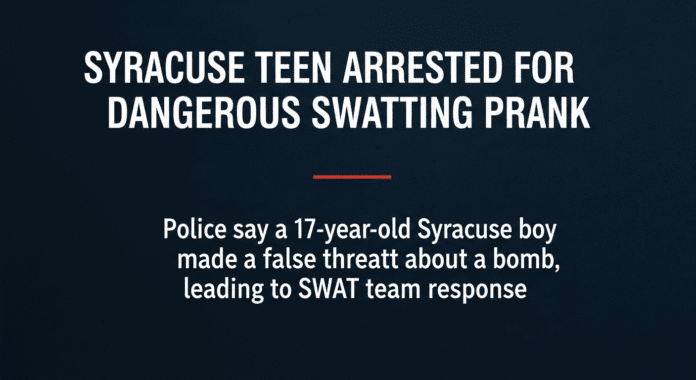Alarming “Swatting” Incident in Syracuse: Teen Arrested for False Report
By David LaGuerre
An Incident with Serious Repercussions
A recent “swatting” incident in Syracuse has captured widespread attention and raised concerns about digital pranks turning deadly. A 14‑year‑old was arrested after orchestrating a false and dangerous report that led authorities to respond to an alleged murder in Florida—a distressing misuse of emergency services that underscores the darker side of online behavior. Such incidents remind us of the real-world implications that reckless digital actions can have on community safety and trust.
The Dynamics of Digital Mischief
Swatting is an alarming phenomenon where pranksters generate false emergency calls, provoking a full police response to unsuspecting victims. In this case, the wrongful report not only endangered the targeted family but has brought a national spotlight to issues of cybersecurity, digital ethics, and juvenile accountability. With incidents regarding similar patterns emerging nationwide, experts stress that this episode is not isolated but part of a growing challenge in the digital age that demands urgent attention from policymakers and community leaders alike.
Reflections on Youth Responsibility and Justice
This incident serves as a critical reminder that digital freedom comes with responsibilities. Community members—especially young people—must be educated on the serious consequences of misusing technology. Advocates are calling for comprehensive digital literacy programs and restorative justice approaches that balance accountability with opportunities for rehabilitation. The case fuels the broader debate on how to create safer online environments and ensure that emerging digital trends do not erode public trust in essential services.
Engaging in a Broader Conversation
In our current social climate, the incident ignites a broader dialogue on addressing disruptive behaviors while supporting at-risk youth. Local community centers and schools are invited to host forums discussing the ethics of digital behavior, while parents and educators emphasize the importance of nuanced conversations over punitive measures alone. We encourage our readers to share their perspectives and engage in discussions that could help shape more balanced policies in the future.




